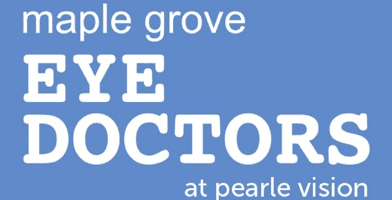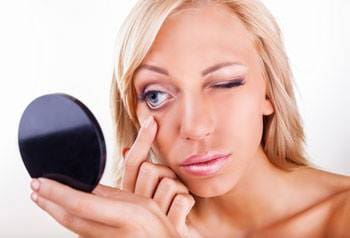Quit these habits to ensure that you can see clearly now, and in the future!
You rely on your eyes from the moment that you wake up to the moment that you turn out the lights at night. Are you taking care of your vision?
- Sleeping in your contacts. For the enzymes and the antibodies on the surface of your eye to work against germs they need oxygen. Sleeping in your contacts reduces the supply of oxygen and is compounded by your eyes being closed, making them less able to fend off infection. Even those approved for overnight wear is risky – the risk of a corneal ulcer is 10-15x greater in extended wear contact lens users.
- Sleeping in your makeup. Sleeping with mascara on your lashes can clog the glands around your eyes, resulting in irritated skin, pimples, and even sties.
- Not getting regular eye exams. Eye exams check more than if your vision is 20/20. They check the overall health of the eye, and since there are no pain receptors behind the eye, if you have a broken blood vessel there, you may not know until it starts to interfere with your vision.
- Using expired solution, lenses, drops. Don’t ignore expiration dates – they’re there for a reason – the antibacterial ingredients may be broken down, and can cause serious infections.
- Touching and rubbing your eyes. If you have an itchy eye, it’s best to keep the lid closed and to touch only the outside of the eye, especially if you just shaken hands with someone with a cold. Your eyes are protected by mucous membranes that can easily collect dirt and germs, making them a great place for bacteria to grow. Also, rubbing too hard and lead to broken blood vessels and inflammation.
- Skipping eye protection. 90% of sports related eye injuries could be prevented by wearing impact resistant protective eyewear.
- Applying eyeliner to your waterline. Putting eyeliner inside the lower lash line is a risky move because you’re mixing it with your tears. If you’re wearing contacts, your lenses then get coated in tiny makeup particles, which can deprive your eye of oxygen. Even if you’re not wearing contacts, those makeup particles can carry germs that may cause infection. Liquid liner can be especially dangerous, since the applicator tip may sit in a tube that can harbor bacteria.
- Not wearing quality sun protection year-round. Wearing sunglasses in winter can be more important because the sun reflects off of the snow. Failing to wear proper UV protection can result in corneal burns, skin cancer on the eyelids, and visible spots on the whites of the eyes. Sunglasses should provide 100% UVA and UVB protection. Putting drug store quality sunglasses on young children can cause more damage to their eyes than going without. Why? Darkening the eye with poor quality lenses fools the eye into thinking it’s protected, causing the pupil to dilate (open up) letting more damaging rays in. Children younger than age 10 have not yet formed the protective pigments on their eyes.






